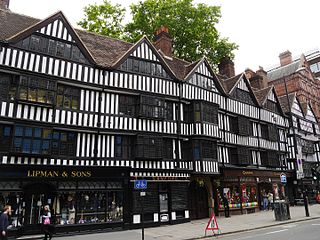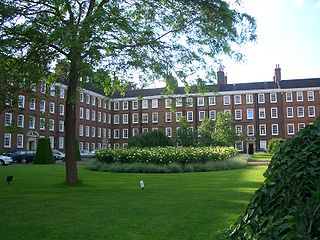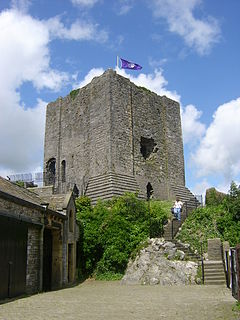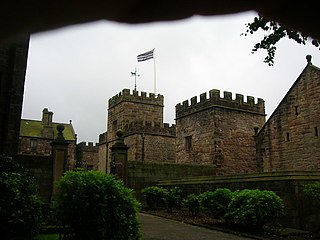Henry Marsden (c.1625 – 4 January 1688) was an English landowner and Member of Parliament.
He was the son of John Marsden, a Clitheroe headmaster and educated as an attorney at Staple Inn and Gray's Inn. In 1674 he bought Wennington Hall in Wennington, Lancashire from the Morley family.

Staple Inn is a Tudor building on the south side of High Holborn street in the City of London, London, England. Located near Chancery Lane tube station, it is used as the London venue for meetings of the Institute and Faculty of Actuaries, and is the last surviving Inn of Chancery. It was designated a grade I listed building in 1974.

The Honourable Society of Gray's Inn, commonly known as Gray's Inn, is one of the four Inns of Court in London. To be called to the bar and practise as a barrister in England and Wales, a person must belong to one of these Inns. Located at the intersection of High Holborn and Gray's Inn Road in Central London, the Inn is both a professional body and a provider of office accommodation (chambers) for many barristers. It is ruled by a governing council called "Pension", made up of the Masters of the Bench, and led by the Treasurer, who is elected to serve a one-year term. The Inn is known for its gardens, or Walks, which have existed since at least 1597.

Wennington Hall is a former country house in Wennington, a village in the City of Lancaster district in Lancashire, England. The house is a Grade II listed building and is now occupied by Wennington Hall School.
He was a Justice of the Peace for the West Riding of Yorkshire from 1667 to his death, for Lancashire from 1676 to his death and for Gloucestershire and Carmarthenshire from 1680 to his death. He was a deputy Lieutenant of Lancashire from 1680 to his death.
He was elected MP for Clitheroe in 1680 and 1681.
He died in 1688. He had married Jennet, the daughter of Adam Mort of Preston, Lancashire, with whom he had six daughters.









